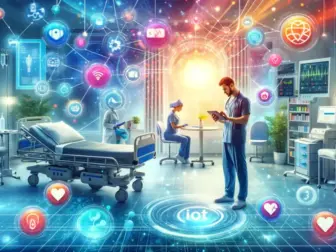Tag - healthcare innovation
Revolutionizing Patient Care: Cutting-Edge Innovations Transforming Healthcare
Revolutionizing Patient Care: Cutting-Edge Innovations Transforming Healthcare
Healthcare innovation is a dynamic and ever-evolving field, with new technologies, treatments, and approaches emerging constantly to improve patient outcomes and streamline healthcare delivery. The impact of these innovations is far-reaching, affecting everything from diagnostics to disease management, and even altering the way we think about health and wellness. In this detailed exploration, we will delve into the various facets of healthcare innovation that are revolutionizing patient care.
One of the most significant advancements in healthcare has been the integration of digital technology. Telemedicine, once a novelty, has become a staple in providing care to patients in remote or underserved regions, as well as offering convenience for those with mobility issues or tight schedules. Video consultations, remote monitoring, and mobile health apps have bridged the gap between patients and providers, ensuring continuous care and health management from the comfort of one’s home. These digital solutions have proven particularly invaluable during times of crisis, such as the COVID-19 pandemic, where they played a pivotal role in maintaining healthcare services while minimizing the risk of infection.
Artificial intelligence (AI) and machine learning are also transforming the healthcare landscape. AI-driven diagnostic tools can analyze medical imaging faster and sometimes more accurately than human radiologists, catching abnormalities at their earliest stages. Predictive analytics powered by machine learning can sift through vast amounts of health data to identify at-risk patients, enabling preventative measures that can save lives and reduce healthcare costs.
Another area of healthcare innovation is personalized medicine, which tailors treatment plans to the individual’s genetic makeup, lifestyle, and environment. Advances in genomics and biotechnology have paved the way for therapies that are specifically designed to work with a person’s unique biology, dramatically increasing the efficacy of treatments for a wide range of diseases, including various forms of cancer.
The development of new medical devices is another frontier in healthcare innovation. Wearable technology has made significant strides in empowering patients to take charge of their own health. Devices such as smartwatches and fitness trackers can monitor vital signs, detect irregular heartbeats, and even predict potential health events. On the more advanced end of the spectrum, robotic surgery systems have enhanced the precision and efficiency of surgical procedures, leading to quicker patient recovery and reduced risk of complications.
Healthcare innovation also extends to the pharmaceutical industry where drug research and development have been accelerated through the use of advanced computational models, leading to the faster introduction of new medications to the market. Additionally, novel drug delivery systems, such as nanoparticle-based therapies, are being developed to improve the targeting and effectiveness of treatments, minimizing side effects and improving patient quality of life.
Moreover, the concept of healthcare innovation is not limited to technology and treatment alone. It also encompasses new healthcare models and practices, such as value-based care, which focuses on patient outcomes rather than the volume of services provided. This approach incentivizes healthcare providers to offer more coordinated, efficient, and effective care, leading to better health results for patients and more sustainable healthcare systems.
In conclusion, the landscape of healthcare is undergoing a transformation driven by a surge of innovations across multiple domains. From digital health to personalized medicine, and from advanced medical devices to new pharmaceuticals, these advancements are setting a new standard for patient care. As the healthcare industry continues to evolve and adopt these innovative solutions, patients stand to benefit from more accurate diagnoses, more effective treatments, and overall improved health outcomes, heralding a new era of medicine that is both high-tech and highly personalized.
